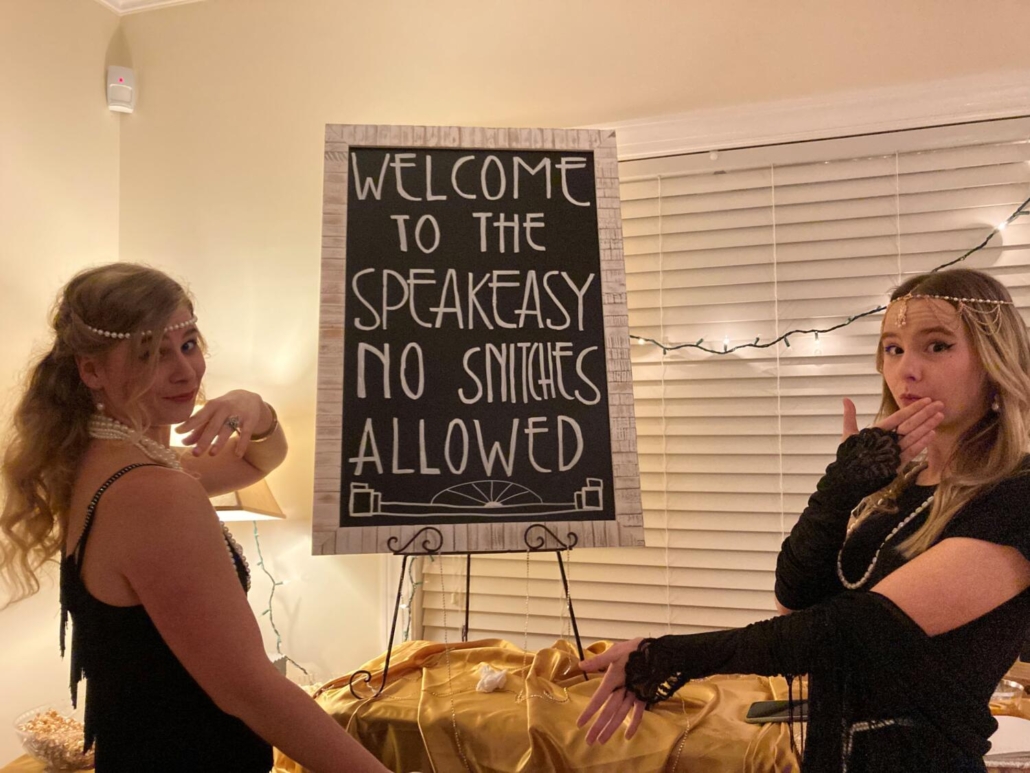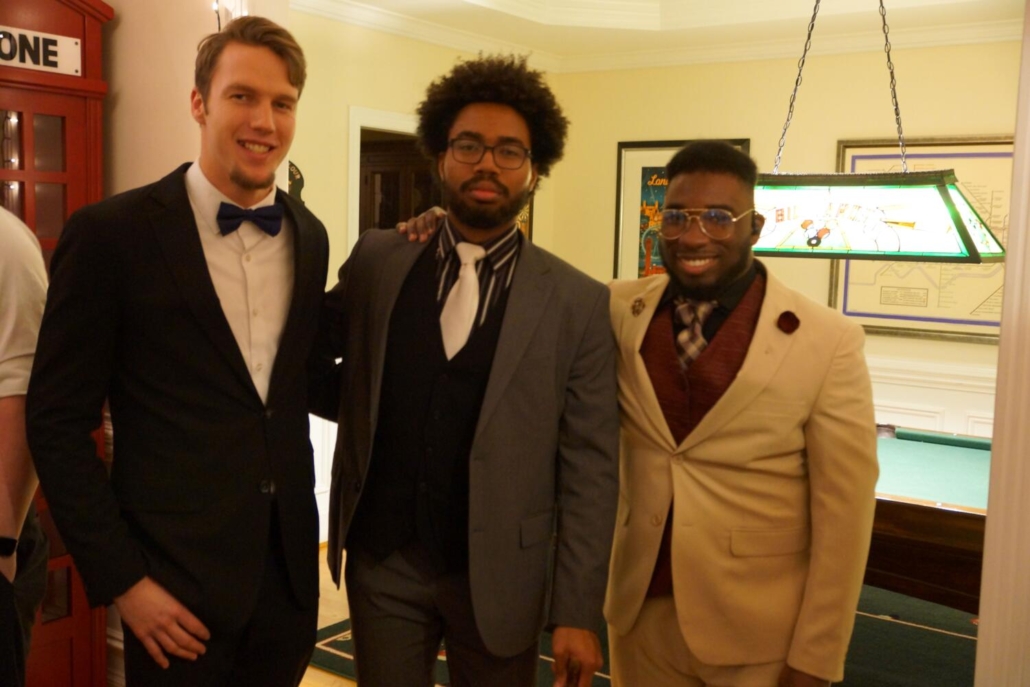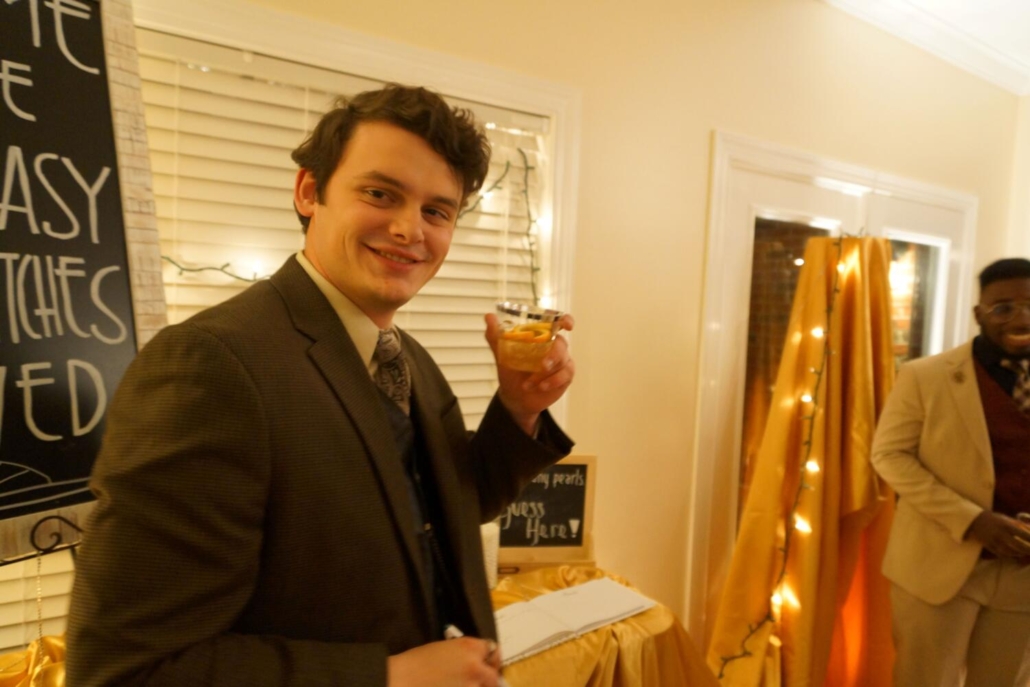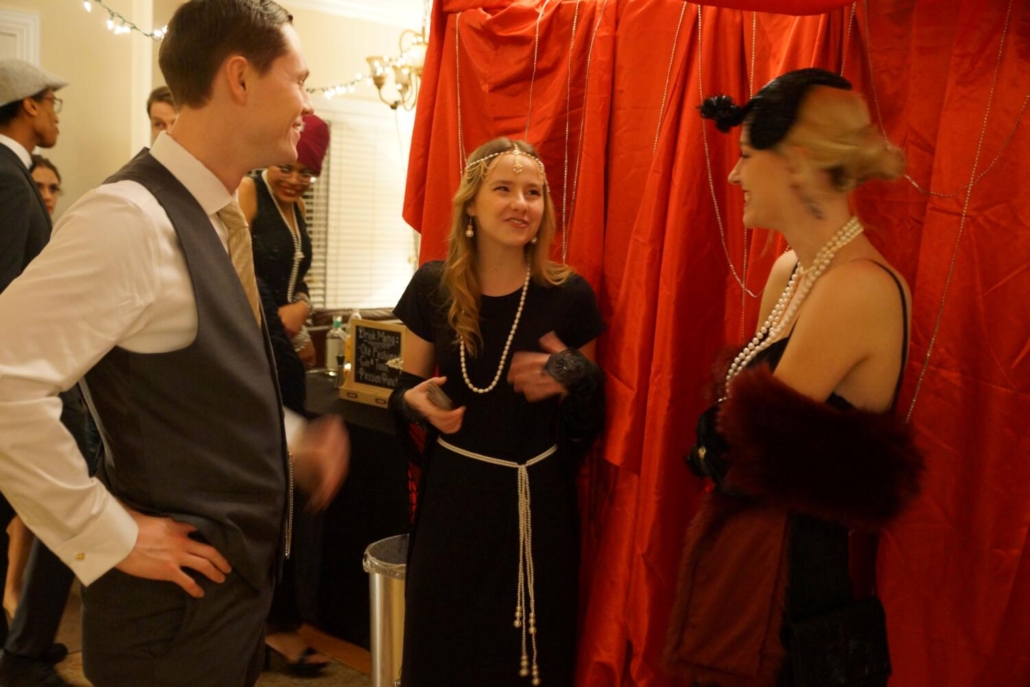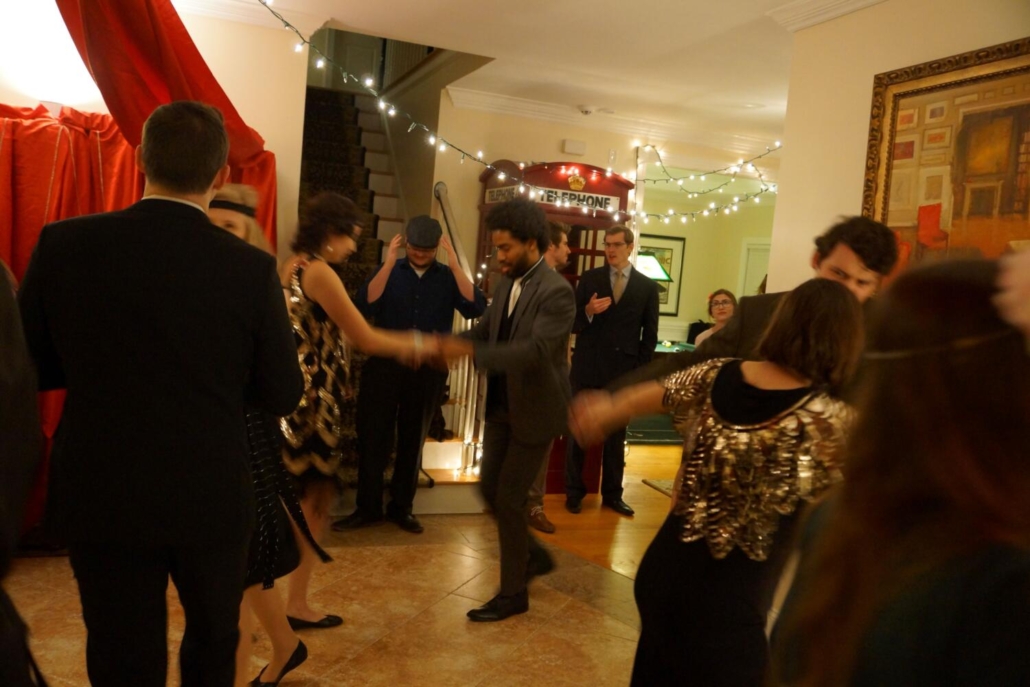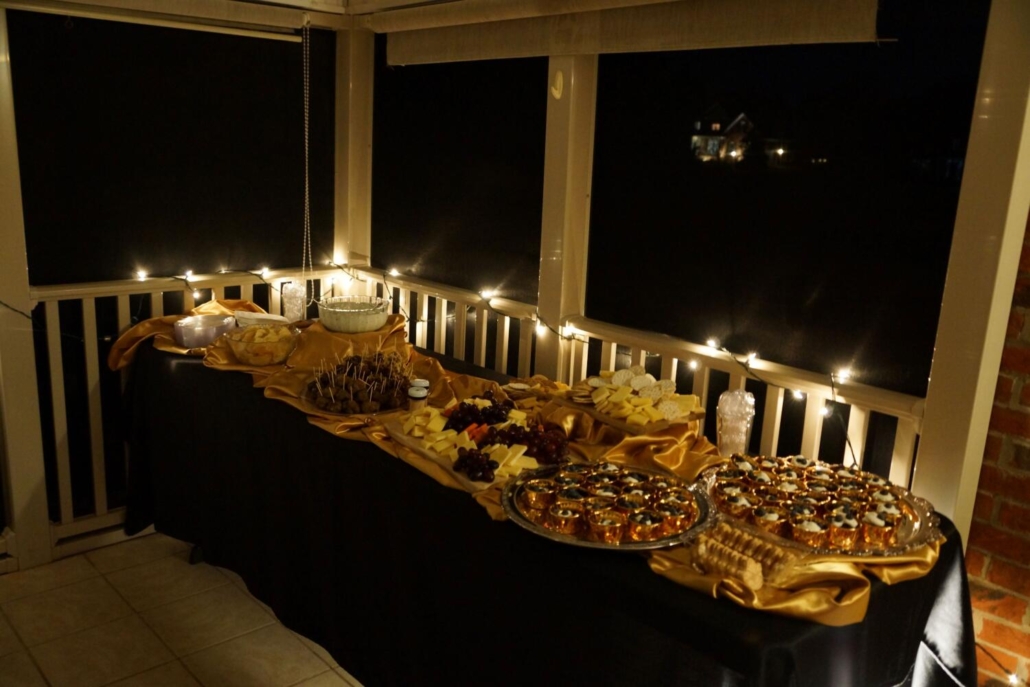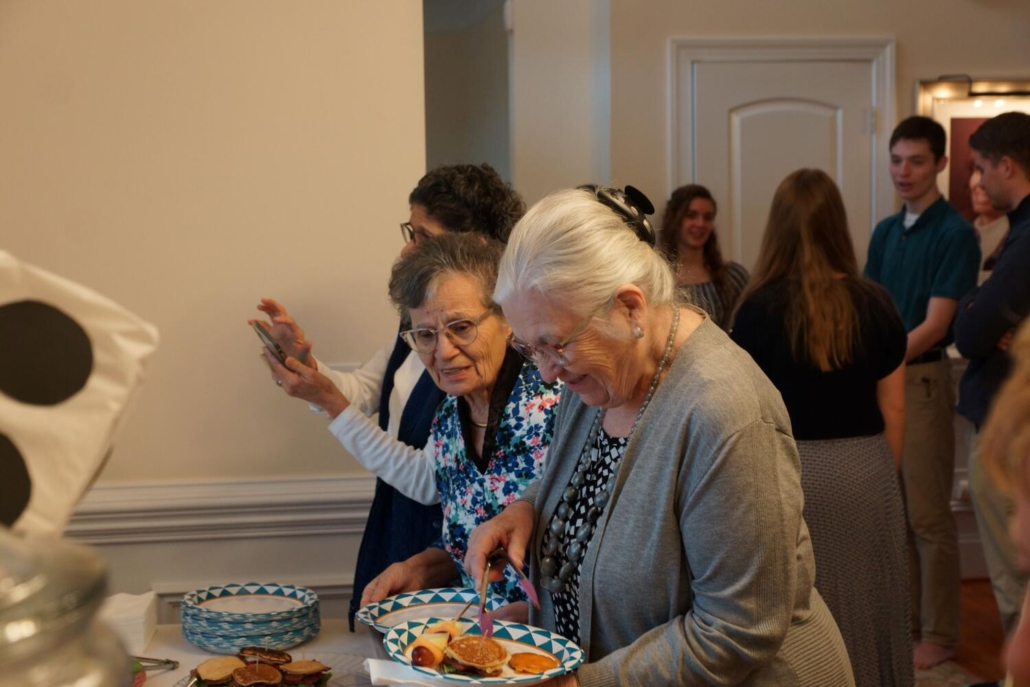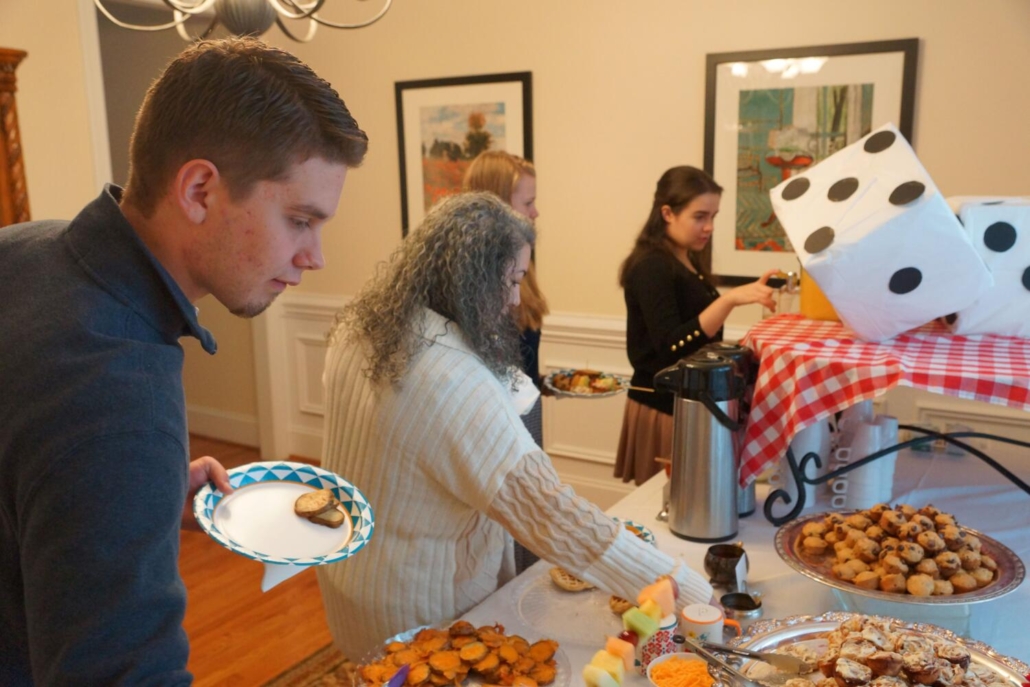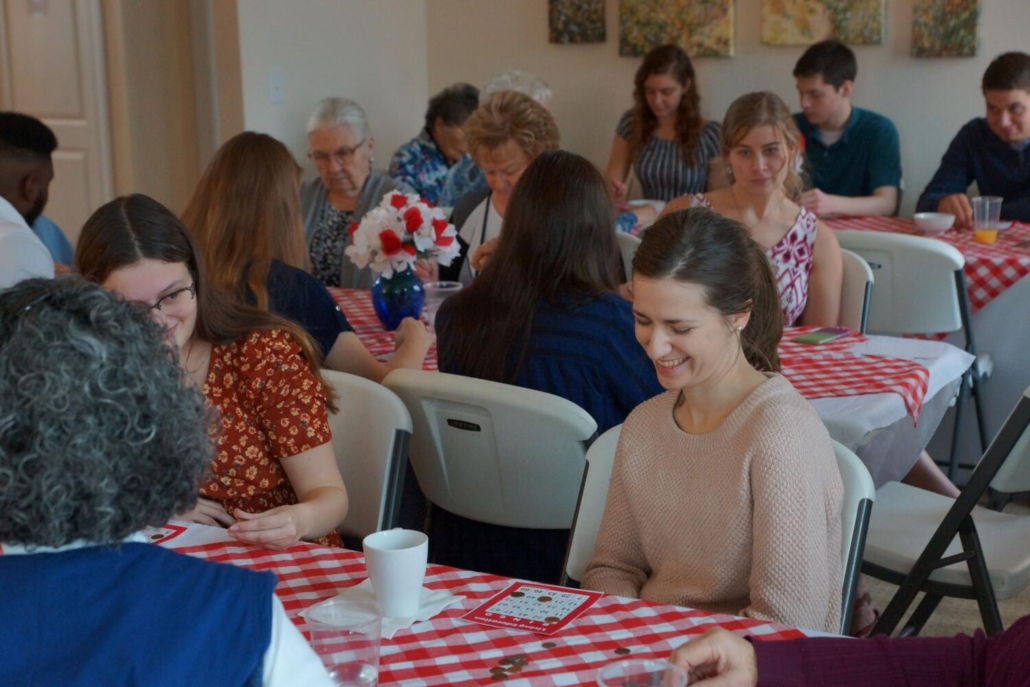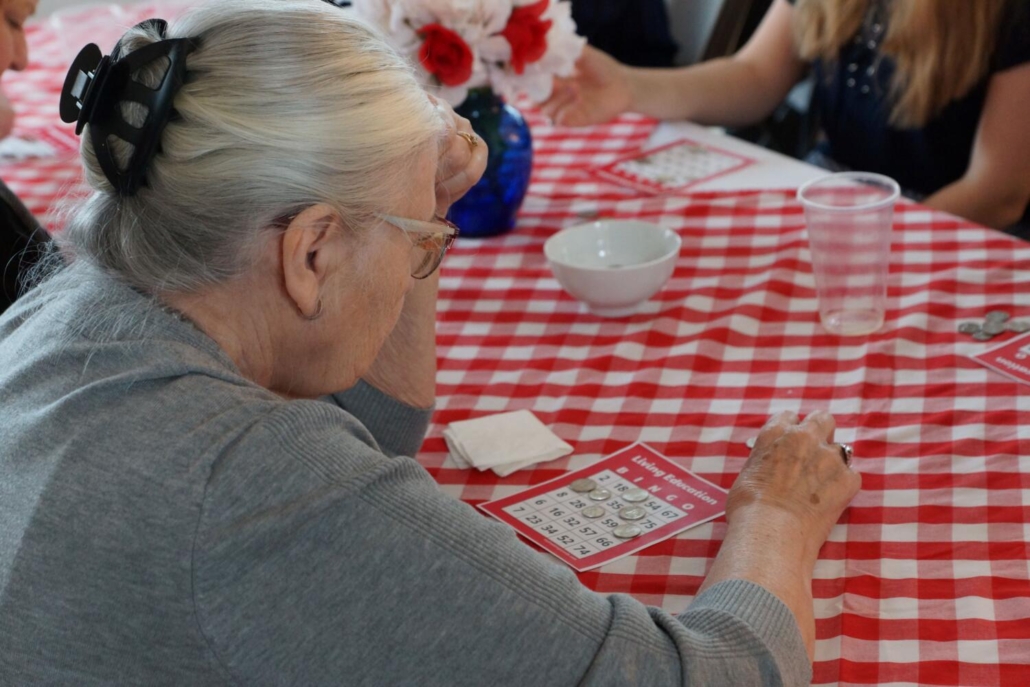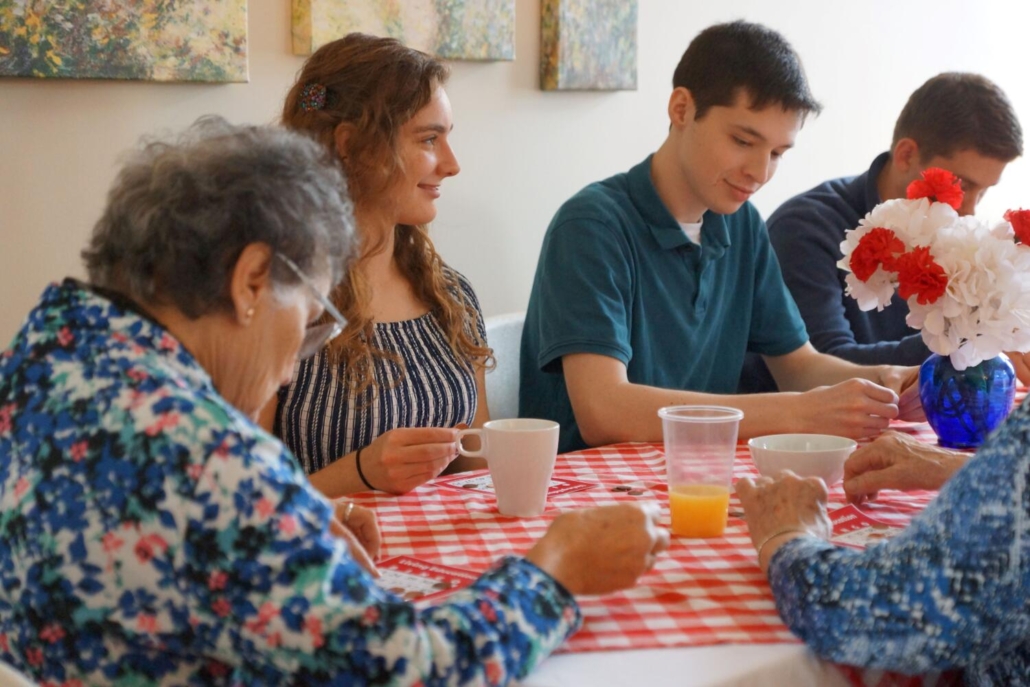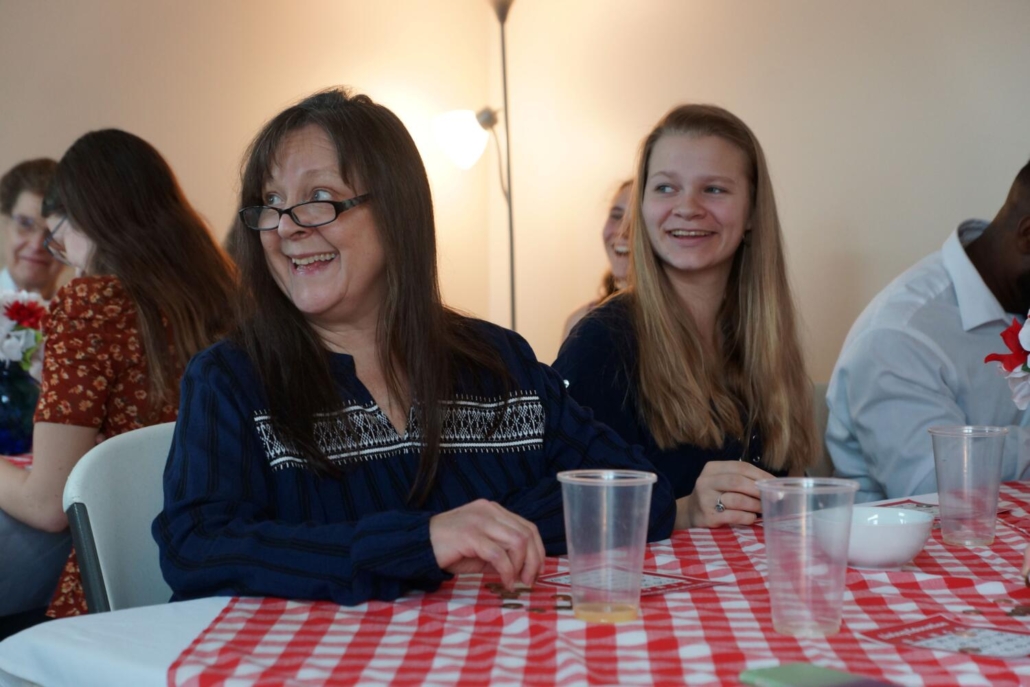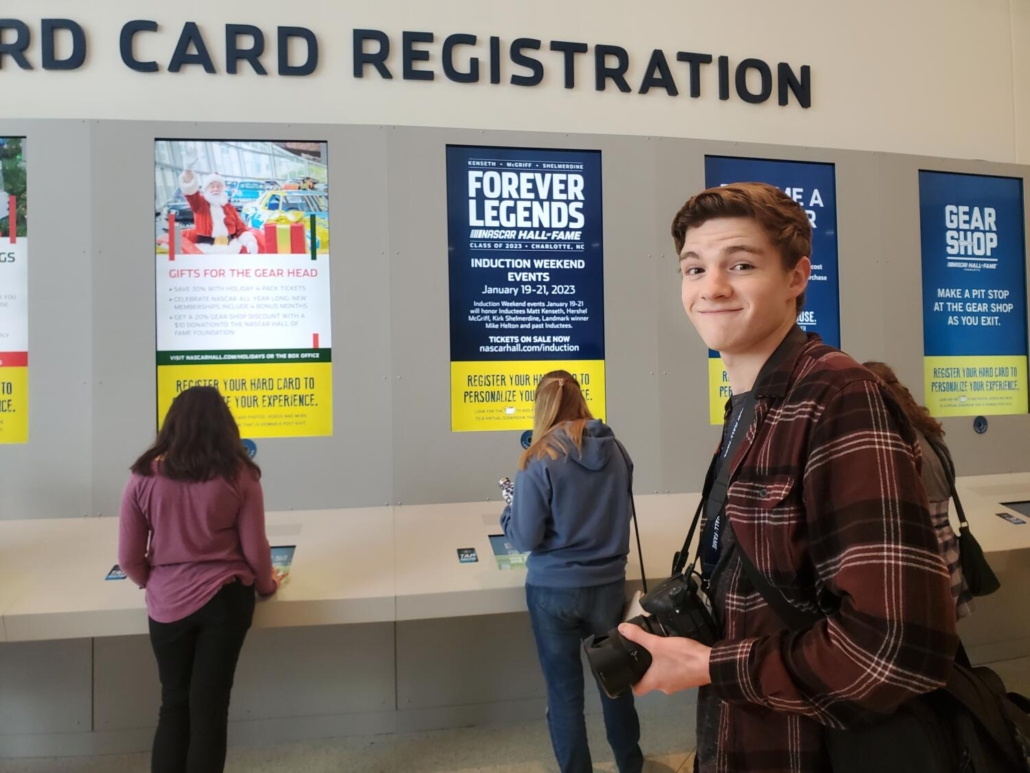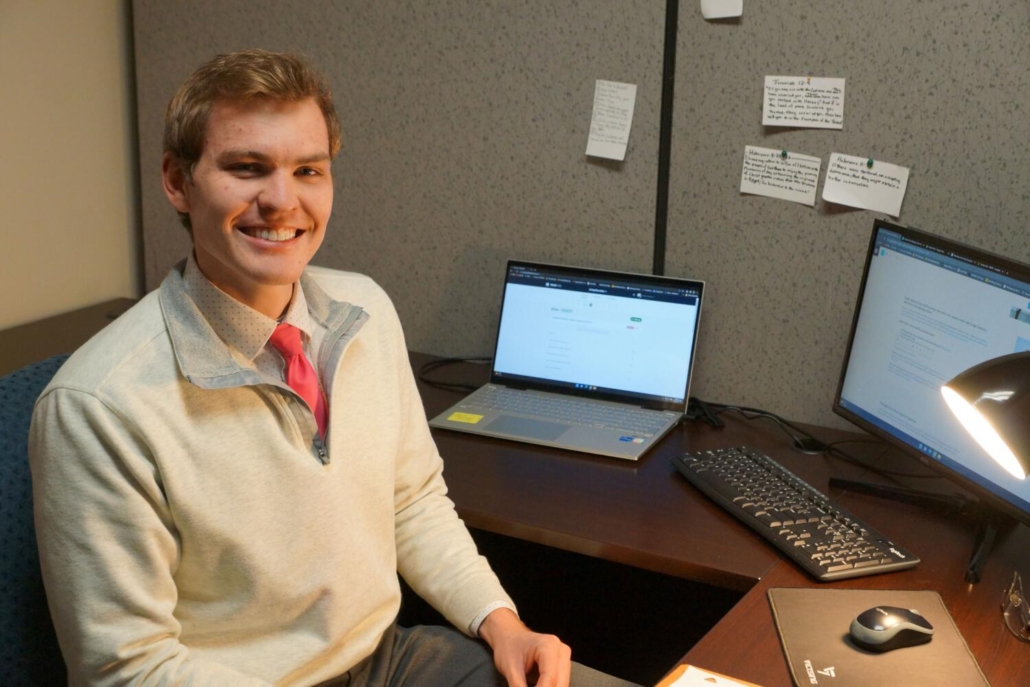Working in the Maintenance Department
Author: Kaleb Johnson | Student, Living Education – Charlotte, 2022-23
Estimated reading time: 4 min.
Here’s a look at the students in the Maintenance Department for the Living Education work/study program.
Maintenance can cover a wide range of duties, and it can be different from company to company. So what is it like working as a student in the Maintenance Department here at the Living Church of God Headquarters? Today’s post answers that question by exploring the duties of two Maintenance Department employees: David Smith and Andrew McNair. This post also features personal comments from the students about their position and their experience working so far.

Andrew McNair works as a Maintenance Assistant, maintaining the building and grounds and assisting on renovation projects.
Andrew McNair is one of two students working in the Maintenance Department. Prior to accepting this position, he had experience with carpentry and renovation, but he has learned many new skills in this position and developed greater proficiency with skills he already had. He described how he learned more about the nuisances of painting and carpentry projects in this position.
Andrew’s Main Roles in the Maintenance Department:
- Loading equipment truck for Church services (every week)
- Inspecting emergency exit signs (at least once a month)
- Inspecting fire extinguishers (at least once a month)
- Checking the office grounds for trash
- Assisting with renovation projects
Most fun part of the job? “A couple days ago, we started organizing the tools and stuff, because there are a lot of random things back there [the maintenance corner of the warehouse storage area]. It was great to see it all sorted out finally. There’s a lot of chaos back there.”
Most challenging part of the job? “Not really knowing how long we’ll being doing a project or what the next step will be. Who knows? It could be a week-long project or twenty minutes. It can be all over the place.”
Most recent renovation project? “We were putting up some doors upstairs over some printing paper on a shelf. We started working on it, and we were halfway done when we discovered it was impossible to put door hinges up there based on how the walls were built. It’s drywall and nothing behind it. We weren’t able to finish it, but it was a neat project to start.”
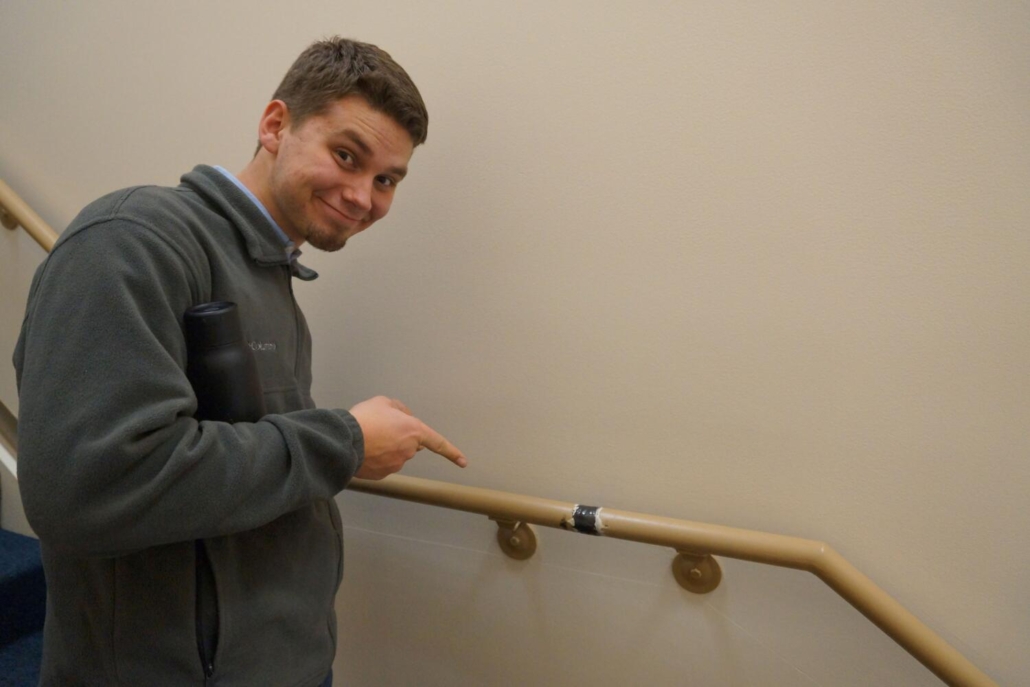

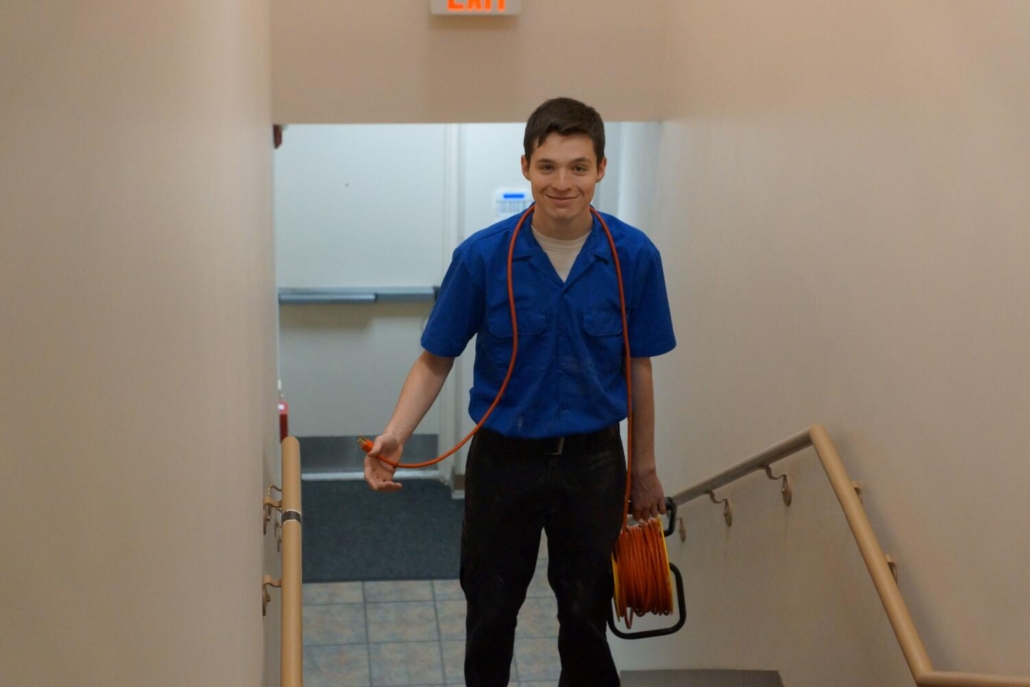

David Smith is also a Maintenance Assistance working to maintain the building and grounds and assisting on renovation projects.
David Smith is the other student who works in this department. Prior to working with the Maintenance Department, he did not have a great deal of experience with carpentry or electrical work, but now he has developed skills in both of these areas and is confident in his ability to “build a wall with two-by-fours and sheet rock.”
David’s Main Roles in the Maintenance Department:
- Being grunt labor for projects
- Replacing light bulbs
- Inspecting emergency exit signs (at least once a month)
- Inspecting fire extinguishers (at least once a month)
- Checking the office grounds for trash
Most fun part of the job? “Sometimes, you get to hit things out with hammers. That’s really low-brow but it’s the most fun part. One time there was a piece of furniture that we needed to fit in the dumpster, so we got to hit it with a sledge-hammer to make it smaller.”
Most challenging part of the job? “Probably the lack of consistency, because some days it’s non-stop work and then others you jump from one task to another. What you’re doing one day may or may not be completely separate from what you’re doing the next day.”
Most recent renovation project? “Today we went to the girls’ dorm and fixed random things. We fixed the alarm by doing the high-skill labor of replacing some batteries. We fixed a leak in the roof that was causing water damage. We tried to fix the downstairs bathroom, but that’s a problem that needs actual plumbers.”
Working and Learning: Part of the Living Ed. Experience.
All of the work/study positions not only provide students with an income, but also give valuable experience that will benefit the students throughout their lives. Both David and Andrew are learning new skills and honing those they already possess. Working in the Maintenance Department involves a variety of projects and tasks—so much so that unpredictability was the most challenging aspect of the position for Andrew and David—but all of those projects are good experiences in a hands-on type of job. I’m sure these workers will never shirk away from a home renovation project now!
We did a similar post discussing working in the Living Education Department that you may find interesting.

Kaleb Johnson is a student in the Living Education-Charlotte Program. He graduated with a degree in Chemical Engineering from the University of Alabama in Huntsville in the spring of 2022. In addition, Kaleb enjoys writing, video-making, trying new activities (anything and everything), playing chess, and debating (it’s not arguing!) with people. He currently works in the Living Education department producing written content & videos and helping with a variety of other projects.


